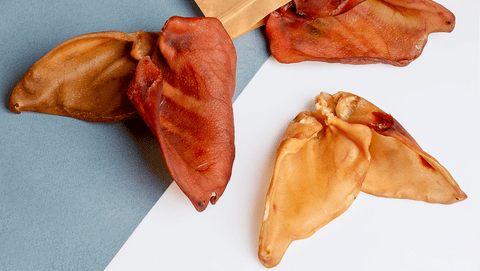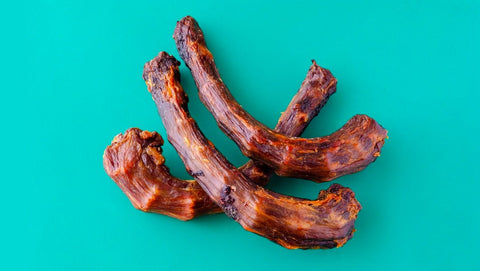All-natural dog chews are a preferable option to commercially-made chews, as they offer a safer and healthier alternative. Not only do they aid in alleviating dogs' biting and nipping tendencies, but they also provide essential nutrients such as calcium and proteins.
What Are the Benefits and Downside of Rabbit Ears for dogs?
Rabbit ears are a healthy all-natural dog chew option as they are rich in protein and low in fat, providing additional nutrients to dogs without the risk of weight gain.
Benefits: rabbit ears lessen intestinal parasites.
Rabbit ear chews that come with fur can provide a natural way to help remove intestinal worms by sweeping the intestinal walls. However, it is important to note that rabbit ear chews alone cannot completely eliminate these parasites. Dewormers are still necessary to effectively address this health issue.
Benefits: rabbit ears promote a healthy digestive tract.
When rabbits ears with fur are consumed by dogs, the fur serves as a gentle brush that helps clear undigested food and aids in producing firm stools. This helps regulate their bowel movements and improve nutrient absorption in their digestive system, making rabbit ears a healthy and natural option for dog chews.
Benefits: rabbit ears reduce the chances of allergic reactions.
Rabbit ears are categorized as a novel protein, which implies that they are less likely to provoke negative reactions in dogs with common protein allergies such as poultry and beef. Therefore, if your furry friend is affected by this health condition, rabbit ears serve as a good substitute for conventional dog chews.
Downside: may cause impaction.
To prevent digestive issues, it's best to limit your dog's intake of rabbit ear chews to 2-3 pieces per week. This is because the fur on these all-natural dog chews contains a hard-to-digest fiber that can accumulate in the digestive tract if consumed in large amounts.
When choosing natural dog chews, look for ones made from organic or free-range animals. And always supervise your dog when they're chewing to prevent accidents like choking or tooth fractures.





